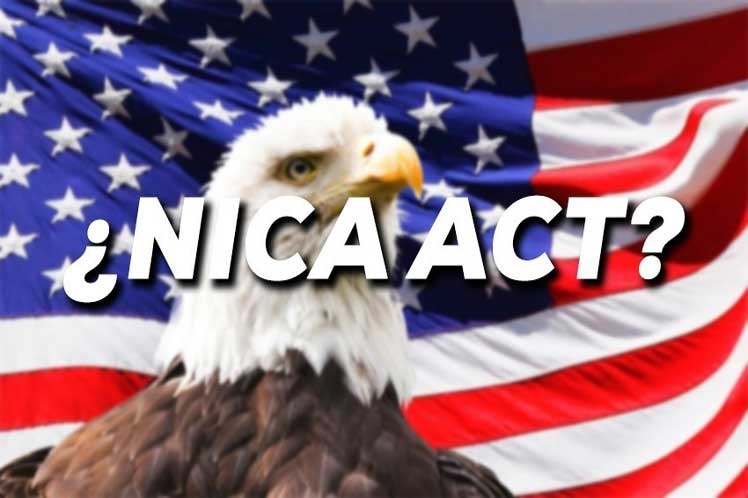The Revolution of the Majorities that Washington Tries to Suffocate
Managua, (Prensa Latina)
In late 2018, the Congress of the United States approved, and President Donald Trump signed, the Nicaraguan Investment Conditionality Act, also known as the Nica Act, a further step in Washington''s policy to besiege that Central American country. Much has been said about the Nica Act, but what is it about and what would its effects be in the political, economic and social life of Nicaragua? In just a few months, the country has seen the stepping up of the destabilizing campaign against it, funded and led by the Capitol and the White House.
The Nica Act has been in the US legislative scenario since 2016, when it was submitted by the congresspeople Albio Sires (Democrat) and Ileana Ros-Lehtinen (Republican), the latter is a well-known enemy of everything that brings benefits to the majorities.
In mid-2018, the Foreign Relations Committee of the House of Representatives approved the draft bill and the Senate did the same in late November, after making some amendments to the document.
Finally, the Congress gave its approval and President Trump signed the Nica Act, a law that gives the US Government the right to veto loans granted by international financial institutions to Nicaragua to develop the country in several sectors.
The interesting thing about these actions is that blocking the loans from the International Monetary Fund (IMF), the World Bank (WB) and the Inter-American Development Bank (IMDB) affects a series of social development programs that the Sandinista Government is carrying out with foreign financing.
The most affected ones will be the huge majority of the Nicaraguan people who, since the return of Sandinism to power in 2007, have experienced sustained development, which has been recognized by international agencies that had estimated the growth of Nicaragua's Gross Domestic Product (GDP) at an average of 5 percent until 2017.
In 2018, a similar trend of that macroeconomic indicator was expected, but the coup attempt and other destabilizing and violent actions made the country lose more than one billion dollars.
The Nica Act has been denounced more than once by President Daniel Ortega and other Government officials, and by the majority of sectors of Nicaraguan society, who have described this law as an act of interference in domestic affairs and a way to damage an economy that is recovering against all odds.
The objective is to undermine the good economic performance achieved by the country during the Sandinista Government and the wide scope of its social policies in the fields of public health, education, infrastructure, jobs, poverty reduction, support for local entrepreneurs, housing, citizen's security, etc.
The Nica Act is just another wheel of a bigger machine that is included today in the action plan of the Organization of American States (OAS), which, beyond any reasons, is seeking to implement Article 20 of the Inter-American Democratic Act in Nicaragua.
Meanwhile, Nicaragua is working to consolidate peace and reconciliation among its citizens, and it continues to boost ambitious economic and social development policies.
Source: Prensa Latina

